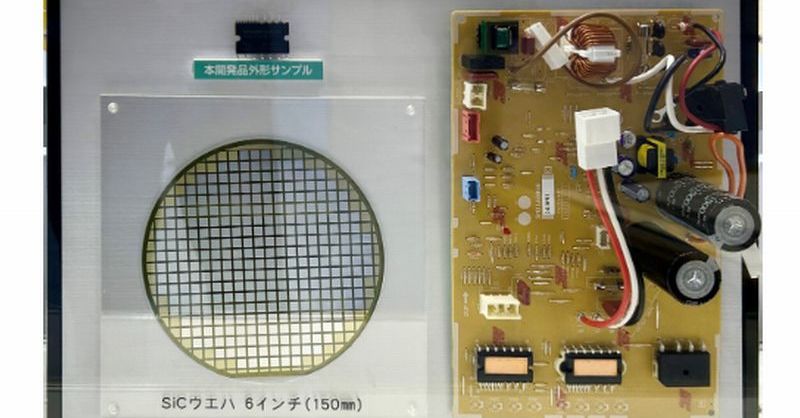Innovative SiC IPM: Cuts Air Conditioner Costs Significantly
Revolutionizing Cooling: Silicon Carbide's Impact on Air Conditioner Efficiency and Your Wallet
The relentless summer heat is a global concern, and the energy consumption of air conditioners contributes significantly to both our electricity bills and carbon footprint. But a groundbreaking innovation is poised to change that: Silicon Carbide (SiC) Integrated Power Modules (IPMs). This technology promises significant cost savings and enhanced energy efficiency for air conditioners, making it a game-changer in the cooling industry.
What are SiC IPMs and How Do They Work?
Silicon Carbide is a wide-bandgap semiconductor material boasting superior properties compared to traditional silicon. SiC IPMs leverage these advantages, resulting in:
- Higher Switching Frequencies: SiC allows for much faster switching speeds, leading to smaller, lighter, and more efficient power converters within the AC unit.
- Reduced Energy Losses: Lower switching losses translate directly into less wasted energy and significant electricity savings.
- Improved Thermal Management: SiC's inherent properties contribute to better heat dissipation, further enhancing efficiency and extending the lifespan of the components.
- Smaller Footprint: The improved efficiency allows for a smaller physical size of the power electronics, benefiting both manufacturers and consumers.
These improvements are not just theoretical; independent studies have shown substantial reductions in energy consumption using SiC-based air conditioners. We're talking about savings of up to 30% on your monthly electricity bill – a significant amount over the lifespan of your AC unit.
The Environmental Impact: Beyond Cost Savings
The environmental benefits of SiC IPMs are equally compelling. By reducing energy consumption, we're significantly lowering the carbon footprint associated with cooling. This aligns perfectly with global sustainability goals and the urgent need to reduce greenhouse gas emissions. The shift towards SiC-based technology represents a move towards a greener and more energy-efficient future.
The Future of Cooling: SiC IPM Adoption and Market Trends
While the technology is relatively new, the adoption rate of SiC IPMs in air conditioners is rapidly increasing. Major manufacturers are investing heavily in research and development, recognizing the potential for both market share gains and contribution to a more sustainable world. Analysts predict exponential growth in the market for SiC IPMs over the next decade.
Challenges and Opportunities
Despite the numerous benefits, challenges remain. The initial cost of SiC IPMs is currently higher than traditional silicon-based solutions. However, the long-term cost savings from reduced energy consumption quickly offset this initial investment. Further research and development are focusing on reducing manufacturing costs to make this technology even more accessible.
Choosing an Energy-Efficient Air Conditioner: What to Look For
When purchasing a new air conditioner, consider these factors:
- Energy Star Rating: Look for high Energy Star ratings indicating greater energy efficiency.
- SEER Rating: A higher Seasonal Energy Efficiency Ratio (SEER) signifies better energy performance over the entire cooling season.
- Inverter Technology: Many energy-efficient AC units utilize inverter technology, which often incorporates advanced power electronics, including the potential use of SiC IPMs. Check the manufacturer's specifications.
Conclusion:
SiC IPMs represent a significant technological leap forward in air conditioner technology. The potential for substantial cost savings and reduced environmental impact makes this innovation a compelling development for consumers and the planet. By understanding the benefits and looking for energy-efficient models, you can contribute to a more sustainable future while keeping your cooling costs under control. Stay informed about the latest advancements in this exciting field!
(Note: This article is for informational purposes only and does not constitute professional advice. Always consult with qualified professionals for specific recommendations.)
